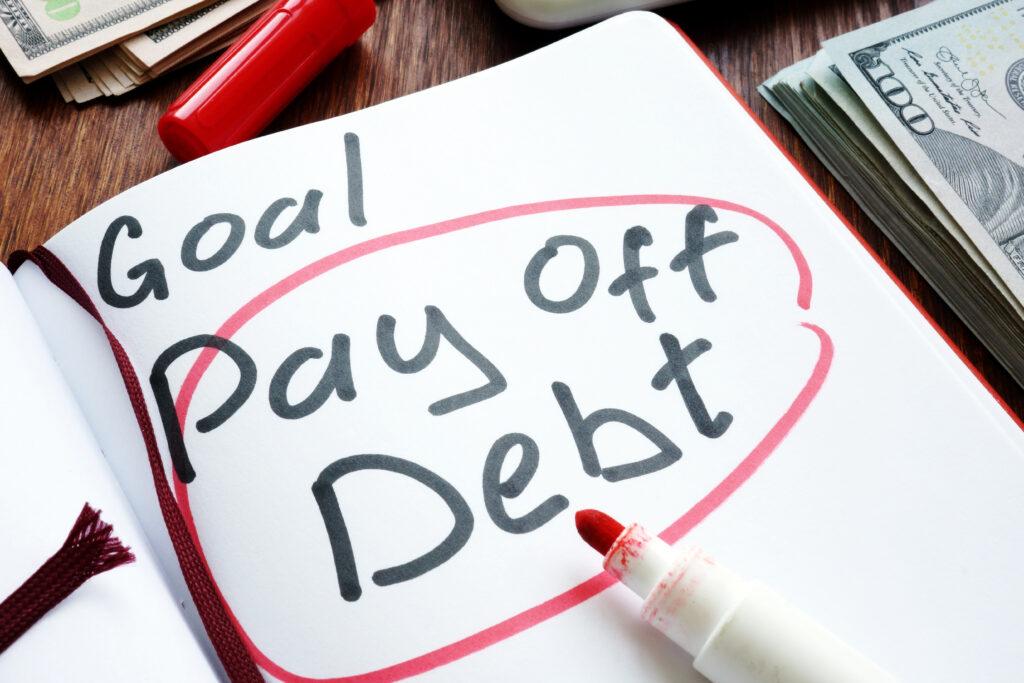Debt can feel overwhelming, but taking control of your finances is possible. This guide will walk you through strategies to help eliminate debt, create an actionable budget, increase income and build lasting financial discipline. Whether you are battling high-interest loans or credit card debt, these steps may help you regain control and achieve a debt-free life.
Assess Your Financial Situation
The first step in tackling debt is understanding what you owe and where your money is going.
- Inventory Your Debts:
Create a list of all your debts, including credit cards, personal loans, student loans and car loans. Make sure to note the balance, interest rate, due date and minimum payment for each. - Review Your Credit Report:
Your credit report offers insights into your debt profile and credit health. Be sure to check it for errors and track your credit score as you begin reducing your debts.
Create a Budget to Pay Off Debt
A budget is essential to ensure your debt payments align with your income and goals.
- Track Income and Expenses:
Use tools such as budgeting apps or spreadsheets to map out your cash flow. Include all your sources of income and categorize your expenses. - Zero-Based Budgeting:
In this budgeting method, assign every dollar a purpose—whether it’s for groceries, bills or debt repayment—so no money is left unallocated. - Emergency Fund:
Build a small emergency fund to cover unexpected expenses. Even $500 to $1,000 may prevent you from accumulating new debt.
Choose a Debt Repayment Strategy
There are different strategies to help you systematically pay down your debt.
- Debt Snowball Method:
Focus on paying off the smallest debt first. As each debt is eliminated, roll the payment into the next one. This method builds momentum and motivation. - Debt Avalanche Method:
Prioritize paying off debts with the highest interest rates to save money in the long term. Although it may take longer to see results, this strategy reduces overall interest paid.
Increase Income and Free Up Cash
Boosting your income accelerates your debt repayment journey.
- Take on Side Hustles:
Consider freelance work, gig economy jobs (like Uber or dog walking) or selling unused items. Even a small increase in income may speed up your progress. - Negotiate a Raise:
If possible, request a salary increase at your current job or explore higher-paying opportunities. - Use Windfalls Wisely:
Apply bonuses, tax refunds or inheritances directly to your debt to make significant progress.
Optimize Spending to Pay Off Debt Faster
Cutting unnecessary expenses frees up cash for debt payments.
- Limit Non-Essential Spending:
Reduce dining out, skip impulse buys and unsubscribe from promotional emails that tempt you to shop. - Meal Planning and Grocery Budgeting:
Save money by planning meals in advance and sticking to your shopping list. - Avoid Credit Card Use:
Use cash or debit to stay within budget and prevent further debt accumulation.
Explore Debt Management Options
In some cases, debt management tools can help streamline the process.
- Debt Consolidation Loans:
Combine high-interest debts into one loan with a lower interest rate, making payments more manageable. - Debt Settlement:
Consider professional debt settlement to potentially eliminate some of your debt. This will negatively impact your credit score, but it can help you get out of debt more quickly. - Credit Counseling:
Work with a credit counseling agency to create a plan for reducing your debt. They can also negotiate lower interest rates with creditors.
Stay Motivated and Celebrate Milestones
Maintaining motivation is key to long-term success.
- Track Your Progress:
Use debt-tracking tools or apps to visualize your journey. Seeing your debt shrink can motivate to stay on course. - Celebrate Small Wins:
Reward yourself when you reach milestones, like paying off a specific debt or hitting a savings goal. Small celebrations can help maintain momentum. - Adopt Long-Term Financial Habits:
Commit to changes that will keep you debt-free in the future. For example, live within your means, avoid new debt and build savings for emergencies.
Getting out of debt takes time, discipline and consistent effort, but the reward is financial freedom and peace of mind. By following a budget, choosing the right repayment strategy, and staying focused on your goals, you may achieve a debt-free life. Stay patient, celebrate your progress and embrace the lifestyle changes that will keep you financially secure for years to come.
The content provided is intended for informational purposes only. Estimates or statements contained within may be based on prior results or from third parties. The views expressed in these materials are those of the author and may not reflect the view of SmartSpending. We make no guarantees that the information contained on this site will be accurate or applicable and results may vary depending on individual situations. Contact a financial and/or tax professional regarding your specific financial and tax situation. Please visit our terms of service for full terms governing the use this site.

